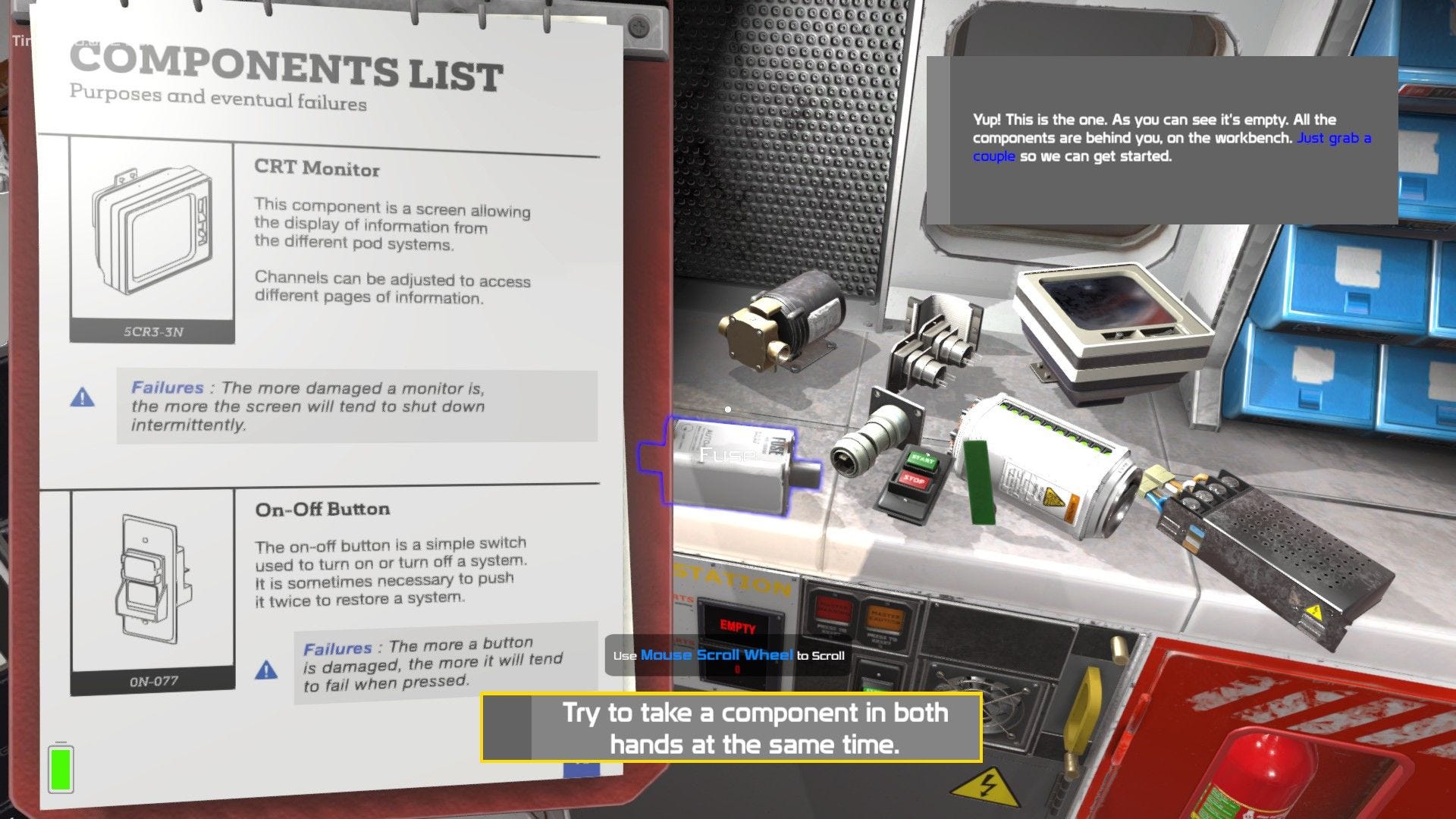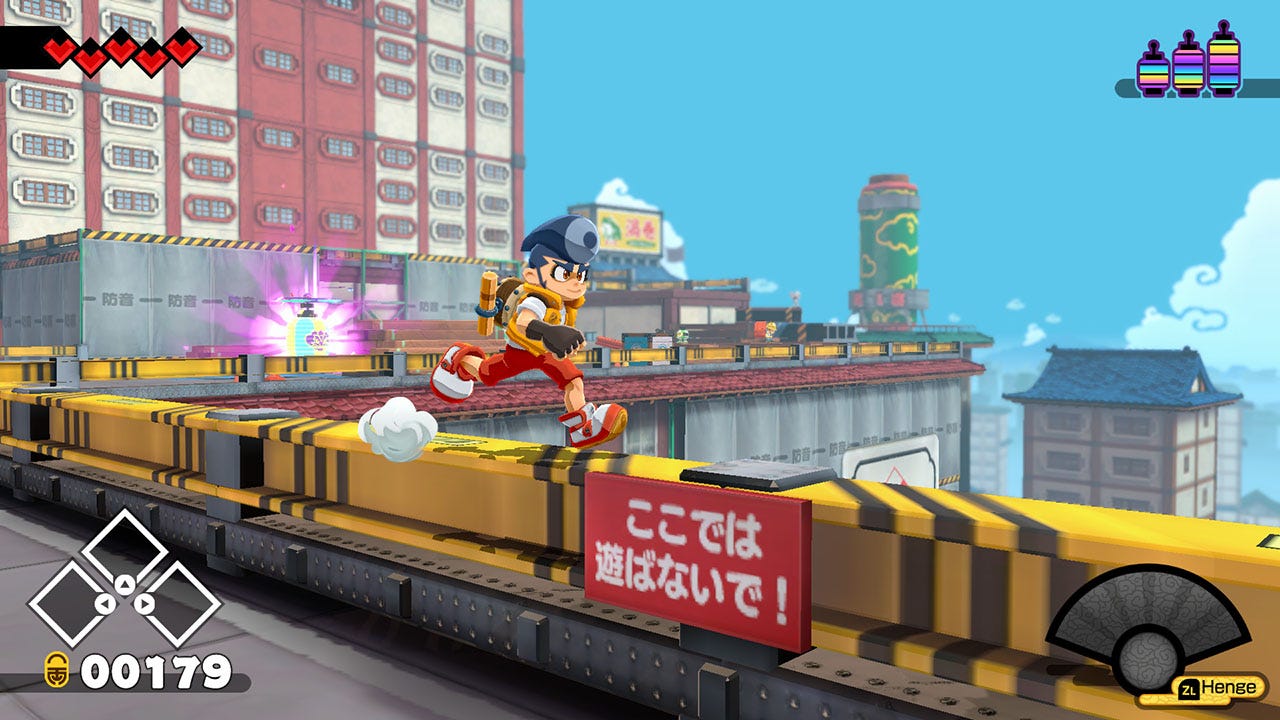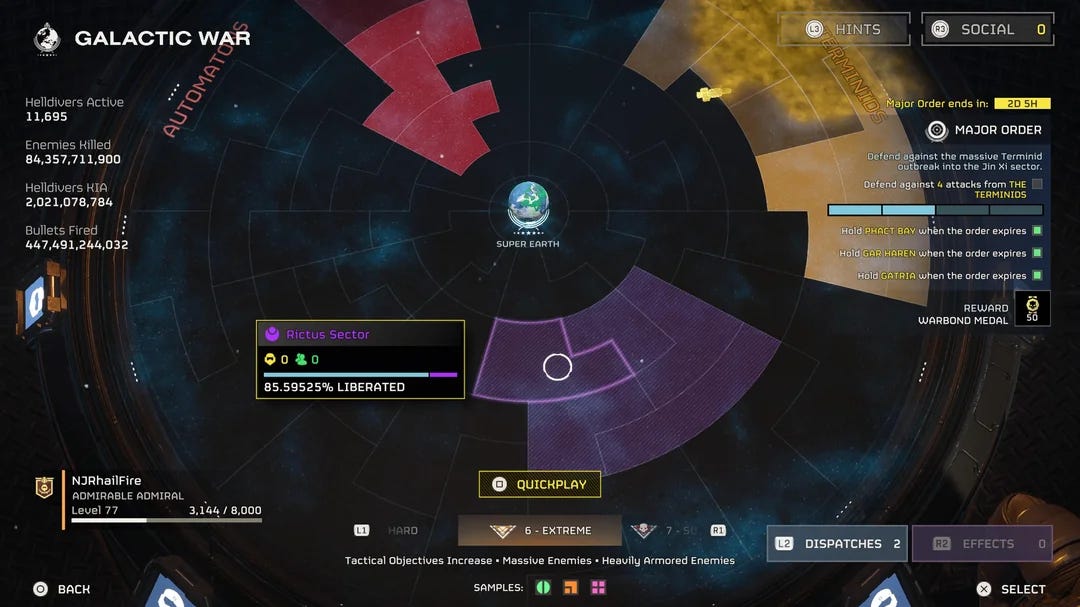I can now die knowing that I’ve blasted bubbles of honey into the air using an elephant’s trunk, jumped up on them to reach the top of a triple-stack of chickens hiding in eggs, and then sucked the yolk out of said eggs using that same trunk. In other words, I can now die happy. For 30 years, Sony has given us a vast library of top-quality PlayStation games, but there has never been a mascot platformer among them to rival the heights that Nintendo’s Mario regularly reaches. Crash Bandicoot tried. Jak and Daxter had a decent run. Even Knack had a go, bless him. Now, though, a true contender has arrived. Packed with dozens of colourful levels and experimental abilities, Astro’s latest outing thrusts him onto centre stage, joined by a supporting cast of PlayStation’s past heroes to provide hours of pure joy. Bursting to the seams with charm, Astro Bot is an inventive, nostalgia-fuelled platformer of the highest order.
If 2020’s Astro’s Playroom was like a museum – albeit one with fun playable exhibits – Astro Bot is like a theme park, throwing a new thrill at you around every corner and after every double-jumped gap. It doesn’t always deliver the bonkers creativity that drives the likes of Super Mario Galaxy and Odyssey, but that’s hardly damning criticism when swings of that size are rarely taken outside of Nintendo’s walls. What developer Team Asobi has designed here, though, does successfully evoke the spirit of those great platformers by birthing novel stages full of visual flourish that never cross the line into becoming mere novelties.
A handful of the many standouts are a time-bending casino, a Japanese bathhouse-inspired level with a humorous sponge system that’s soaked in fun, and a smart level in which the floors and walls dynamically shift depending on whether a day or night button has been pressed – that last one in particular features a fantastic use of 3D space while also feeling like a page torn straight out of the Fez playbook. Astro Bot really is the video game equivalent of venturing through Willy Wonka’s chocolate factory; a delightful concoction of experimentation and joy, just without the child endangerment. Chocolate death pipes and fizzy lifting drinks are instead swapped out for sinkholes leading to treasure and an inflatable friend who helps you reach floating platforms.
It even feels like some popping candy has smuggled its way into your controller as it fizzes and pings away, sweetly reacting to whatever is happening on screen. Astro Bot is a showcase for the DualSense’s bells and whistles unlike anything since, well… Astro’s Playroom at the PS5’s launch. Triggers tighten in your fingers and rumbles are sent through your thumbs. Raindrops tickle your palms. I found my whole body involuntarily drifting from side to side as I guided Astro’s ship with the motion controls. I’d also recommend turning your controller speaker volume up if, like me, you have it muted by default – you’ll be missing out on some fantastic audio flourishes otherwise. And while there’s nothing to quite rival the GPU earworm of four years ago (despite the best efforts of a giant singing tree), the music is a consistent delight throughout.
Most levels are fairly linear, but some go the extra mile and are enjoyably knotty.That soundtrack scores levels that seem simple at first, but soon unfurl themselves to reveal tantalising depths and secrets. Most are fairly linear, but some go the extra mile and are enjoyably knotty, providing sandbox-like areas to hunt for collectibles in. There’s never the openness found in the large-by-comparison Mario Odyssey levels, but enough nooks and crannies to get stuck into nonetheless. There are even whole extra levels to find within levels, with warp points hidden like buried treasure that jet you off to new locations in the “Lost Galaxy”. I’m a big fan of this Russian doll structure and the way it introduces new lands. It ensures a constant supply of surprises throughout Astro Bot’s roughly nine-hour duration.
Some of those biggest unexpected treats are the new powers that Astro gets along his journey. The basic movement of our little robot pal is great, with his jump, double jump, and hover hitting that sweet spot between floaty and finely tuned. But it’s the temporary abilities that come with each level that make things truly exciting. The Twin Frog gloves are a particular favourite, with their sticky tongues flinging out to provide a grapple swing option. They’re also spring-loaded, meaning any incoming projectiles can be sent back from whence they came, exploding in an enemy’s face. I also very much enjoyed the mouse mechanic, which reduces you down to a super small size, effectively turning on a “Toy Story” mode that lets you clamber up oversized shelves and leaves in search of secrets.
Even powers from previous Astro adventures are reinvented to great effect. For example, the Monkey Climber is an evolution of Playroom’s climbing ability, but the assistance of a small robotic ape with huge hands this time means rocks can be hurled and ground pounded to great delight. Laurels are never rested on either, with new ideas and gadgets introduced right up to the final encore. Although some mechanics are reused a little more than I’d like, when such powers are recycled in later levels they’re thankfully recontextualised and given slightly new uses. The aforementioned Twin Frog gloves, for instance, are reintroduced in a cave-like level, where their grapple-swinging ability comes into its own even further, encouraging you to pull worm-like enemies out of the ground from afar.
Outside of bosses and minibosses, there initially doesn’t appear to be a great range in enemy types. Sure, some are coated in different colours of paint or dressed to fit in with their surroundings, but they are all vanquished via the same few fundamental jump and hit combos. Later on, though, the design book opens up and introduces some of my favourite foes. These include an anthropomorphic playing card that flings a hand of clubs and spades your way, which you can then jump on to make your way towards the enemy to deal a killing blow of your own.
It’s light touches of irony and slapstick humour that keep Astro’s playful tone going throughout.Much friendlier faces can be found frequently, though. Over 150 of them in fact, as characters from PlayStation’s vast library of games have made their way into Astro’s world in the form of other bots. There are the ones you’d expect like Lombaxes, tomb raiders, and a certain rapping dog but, delightfully, some are plucked from the more obscure end of the scale. Mister Mosquito, here’s looking at you kid. You’ll never know where you’ll find them either. For example, you’ll rescue everyone’s favourite tactical espionage action hero from the unfamiliar surroundings of Creamy Canyon – a dessert-based land dressed in sprinkles that’s a far cry from the steel and snow of Shadow Moses. It’s light touches of irony and slapstick humour like this that keep Astro’s playful tone going throughout. It really is just a delight from start to finish in this regard.
Many of the PlayStation characters appear as short, charming cameos, but a handful play fully-fledged supporting roles. I won’t spoil who gets the star treatment here, aside from one – the previously revealed Kratos. His introduction sees you wield his ice-infused Leviathan axe and take on the role of the exiled Spartan himself in a thrilling change of pace, the frosty blade boomeranging around the level. It’s here where Astro Bot becomes truly magical, elegantly blending nostalgia with new ideas. Such moments essentially let you play these iconic games in miniature, lending Astro their powers and letting him loose in a level entirely built around familiar stories and settings, soundtracked by remixes of heroic themes. They’re charming and often the real highlight of the experience. I just wish there were one or two more of them, but perhaps I’m being greedy.
It’s clear from the very first frame of Astro Bot just how much love and reverence Team Asobi has for the history of Sony’s consoles and their library of games. You choose a new save file by selecting one of three original PlayStation memory cards and are then thrust into a scene taking place on your PS5-shaped mothership. In terms of story, well… it’s light. That mothership crash lands on a desert planet after an evil alien attack, and Astro must now travel the galaxy searching for its missing parts and crewmates.
It’s clear from the very first frame of Astro Bot just how much love and reverence Team Asobi has for the history of Sony’s consoles.But a deep story isn’t what you’re here for, is it? Free from the now-standard PlayStation Studios themes of threatening apocalypses, familial woe, and coming-of-age pains, Astro Bot is all about following a cheery little metal bloke around on his adventures. That’s not to say it won’t spark an emotional response, though – not through any great feat of nuanced writing, but when bumping into ghosts of PlayStation past and greeting them like an old school friend you haven’t seen in a decade.
The crash site hub world has its own areas to explore and is packed full of quirks, such as eventually letting you customise your ship and outfit. The gacha machine mechanic makes a particularly enjoyable return, providing a satisfying way to spend the thousands of coins you’ll collect. The way it builds out the hub with memorabilia and miniature dioramas for the PlayStation-themed bots to adorably call home again proves a fun, tangible way of visualising your progress through the adventure, rather than simply watching numbers tick up on a screen. It’s not brand-new for the series at this point, but still hits all the right spots.
I arrived at the end credits after nine hours but had only collected 206 out of a possible 301 bots on my journey. There’s plenty to do after the main levels are done, including finding the remainder of the crew, building out the rest of the hub base, and unearthing new secrets among the stars. There’s so much, in fact, that it took me another nine hours (so, 18 in total) to 100% Astro Bot and acquire the platinum trophy that comes with it. While I’d never say any of its main worlds ever approach being truly “difficult” in the pursuit of that 100% completion goal, some enemies or obstacles did take a few tries. Thankfully, checkpoints are often generously and frequently located, meaning you’re only ever moments away from the spot of your previous demise.
An extra level of difficulty can be found in the semi-hidden trial-like stages found by exploring among the overworld’s stars, though. These short sprints are littered with fast-moving objects, numerous enemies, and precise gaps to hop across that are designed to trip you up. Throw a complete lack of checkpoints into the mix as well, and these are easily some of the toughest tasks in Astro Bot, with a final level that’s a real tough nut to crack. It’s a non-stop gauntlet of quickfire threats that made me piece together everything I had learned up until that point in a frantic, but still fun test.







